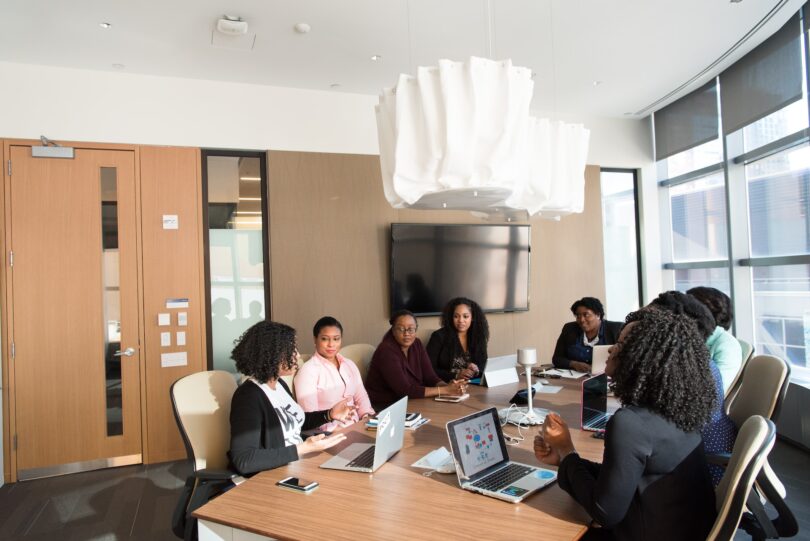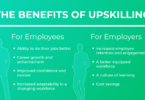In today’s corporate world, the focus on diversity and inclusion has never been stronger. Companies are increasingly realizing the importance of creating environments that embrace individuals from different backgrounds, cultures, and experiences. This shift has led to a surge in demand for diversity and inclusion professionals, with roles like diversity officers and inclusion strategists becoming essential to businesses of all sizes.
But what exactly do these jobs entail, and why are they crucial to the success of modern organizations?
Let’s dive into the world of diversity and inclusion jobs, explore their significance, and understand how they are shaping the future of workplaces.
The Growing Demand for Diversity and Inclusion Jobs
The job market for diversity and inclusion roles is booming. As businesses strive to foster more inclusive cultures, the need for professionals who can lead these initiatives is increasing. Companies are actively looking for individuals with the skills and passion to create equitable environments where everyone feels valued.
But why is this trend gaining so much traction now?
Why Diversity and Inclusion Matter in the Workplace
Diversity and inclusion aren’t just buzzwords. They are vital for creating a workplace where innovation thrives. When people from different backgrounds come together, they bring a wealth of ideas and perspectives. This leads to creative problem-solving and better decision-making.
Think about it: Wouldn’t a team made up of people with varied experiences come up with more diverse solutions?
What Does a Diversity Officer Do?
A diversity officer plays a key role in ensuring that the organization’s policies and practices promote diversity. They are responsible for developing and implementing initiatives that encourage the recruitment, retention, and development of employees from diverse backgrounds.
Some key responsibilities include:
* Developing diversity policies.
* Creating training programs to promote inclusion.
* Measuring the impact of diversity initiatives.
The Role of an Inclusion Strategist
While a diversity officer focuses on bringing different people into the organization, an inclusion strategist works on ensuring those people feel included once they’re there. Their goal is to create a culture where all employees feel valued, respected, and heard.
Inclusion strategists often:
* Work with leadership to shape company culture.
* Advocate for underrepresented groups.
* Develop programs that promote a sense of belonging.
How Diversity and Inclusion Impact Business Success
Companies with strong diversity and inclusion practices see measurable business benefits. Studies show that diverse teams are more innovative and perform better financially. By creating an inclusive environment, companies can attract top talent and improve employee retention.
It’s simple: When employees feel they belong, they’re more engaged and productive.
The Skills Needed for a Career in Diversity and Inclusion
If you’re considering a career in diversity and inclusion, there are several key skills you’ll need to succeed in these roles:
* Empathy: Understanding the experiences of others is crucial.
* Communication: You’ll need to clearly communicate ideas and policies.
* Strategic Thinking: Developing and implementing long-term diversity plans is essential.
* Leadership: You’ll be leading initiatives that impact the entire organization.
Educational Pathways for Diversity and Inclusion Jobs
There isn’t a one-size-fits-all educational path for diversity and inclusion jobs. However, many professionals in this field have degrees in areas like human resources, sociology, or psychology. Some also pursue certifications specifically focused on diversity, equity, and inclusion (DEI).
Continuing education in these areas can also be beneficial, as the landscape of diversity and inclusion is always evolving.
Challenges Faced by Diversity and Inclusion Professionals
While the role of diversity and inclusion professionals is rewarding, it also comes with its own set of challenges. One of the main hurdles is resistance to change. Some employees or leadership teams may be reluctant to adopt new policies or practices, especially if they’ve been ingrained in the company culture for years.
So, how do diversity and inclusion officers overcome these obstacles?
Strategies for Overcoming Resistance in the Workplace
Overcoming resistance to diversity and inclusion efforts requires persistence, education, and strong leadership. One effective strategy is to tie diversity and inclusion efforts to business outcomes. By showing how these initiatives improve employee satisfaction, reduce turnover, and drive innovation, diversity officers can make a compelling case for change.
Education is another key component. Hosting workshops and training sessions to educate employees and leadership about the benefits of diversity and inclusion can help ease resistance and foster a more accepting culture.
The Future of Diversity and Inclusion Roles
As companies continue to recognize the importance of diversity and inclusion, the demand for professionals in this field will only grow. The future looks promising for those passionate about making workplaces more equitable. Businesses are increasingly integrating diversity and inclusion into their core strategies, making these roles vital to organizational success.
But what does the future hold for these jobs?
Evolving Responsibilities in Diversity and Inclusion
The role of diversity and inclusion professionals will continue to evolve as workplace dynamics shift. As remote work becomes more common and global teams become the norm, inclusion strategists will need to develop new ways to ensure employees from different cultural backgrounds feel connected and valued, no matter where they are.
Additionally, the increasing focus on intersectionality—acknowledging the multiple identities that individuals hold—will add complexity to the role.
Why Companies Can’t Afford to Ignore Diversity and Inclusion
Ignoring diversity and inclusion is no longer an option for businesses that want to succeed in today’s competitive landscape. Companies that fail to prioritize diversity may find themselves at a disadvantage, both in terms of attracting top talent and appealing to a diverse customer base.
In short, diversity isn’t just about being fair—it’s about being smart.
How to Get Started in a Diversity and Inclusion Career
If you’re interested in pursuing a career in diversity and inclusion, the best place to start is by gaining experience in related fields such as human resources, corporate social responsibility, or employee engagement. Networking with professionals in the field and staying up-to-date with the latest DEI trends and best practices will also be valuable as you move forward in your career.
Diversity and Inclusion: A Growing Opportunity
The growth of diversity and inclusion roles offers an exciting opportunity for individuals passionate about fostering positive change in the workplace. Whether you’re just starting your career or looking to make a shift, there’s never been a better time to get involved in this vital area.
Making a Lasting Impact
The impact of diversity and inclusion professionals goes beyond the workplace. By advocating for inclusive policies and fostering environments where everyone feels valued, they help create a society that is more just and equitable for all. It’s not just a job—it’s a calling to make the world a better place.
Conclusion
Diversity and inclusion jobs are critical to the future of work. They ensure that companies not only embrace differences but also thrive because of them. As the demand for diversity officers and inclusion strategists grows, so too does the opportunity to make a significant impact on both businesses and society. By fostering inclusive environments, these professionals are helping to shape a world where everyone can contribute their best.
5 Unique FAQs About Diversity and Inclusion Jobs
1. What qualifications are needed to become a diversity officer?
A degree in human resources, sociology, or psychology can be helpful, along with certifications in diversity, equity, and inclusion. Practical experience in related fields is also valuable.
2. What is the difference between diversity and inclusion?
Diversity focuses on bringing together people from different backgrounds, while inclusion ensures that those individuals feel valued and heard within the organization.
3. How do diversity and inclusion impact a company’s bottom line?
Diverse teams are more innovative, and inclusive cultures lead to higher employee engagement and retention, which ultimately improves business performance.
4. What are some challenges faced by diversity and inclusion professionals?
Resistance to change, lack of buy-in from leadership, and deeply ingrained cultural practices can all be challenges in implementing diversity initiatives.
5. Why are diversity and inclusion jobs important for the future?
As the workforce becomes more diverse, the need for professionals who can manage and promote inclusivity is crucial to ensuring that companies remain competitive and successful.






